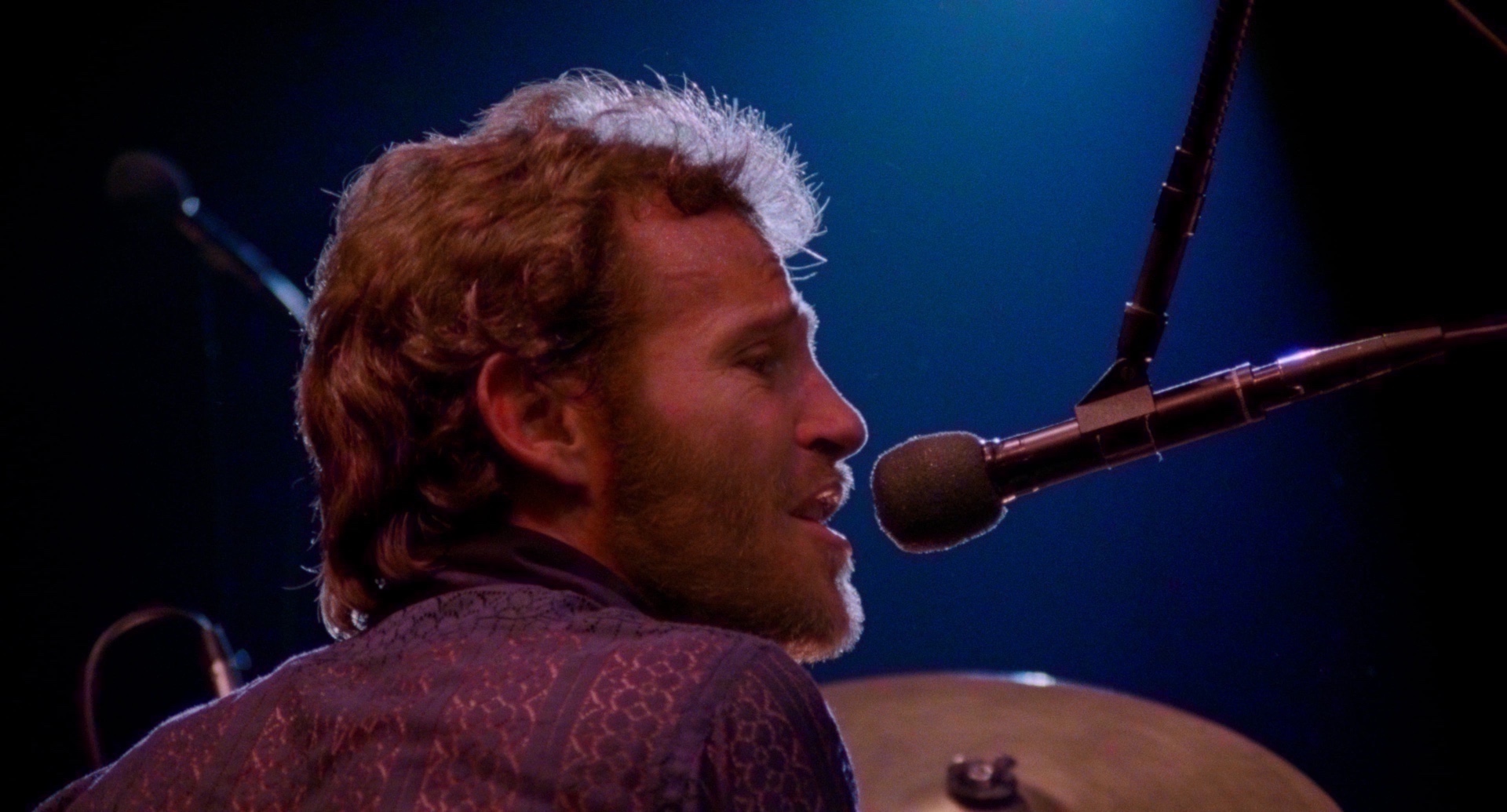Robertson and the others thrived in the makeshift studio at Big Pink, but grinding it out on tour started to feel like punishment. For rock musicians of a certain era, this kind of work—sauntering out in front of a shrieking crowd, rotgut whiskey sloshing in an open bottle, lit cigarette listing between the frets of a guitar—was tangled up with punishing ideas about masculinity, toughness, authenticity. It was easy, back then, to conflate self-destructive behavior with freedom; that was the whole beautiful, paradoxical ethos of rock and roll. But after a certain age, the road—where damaging vices are easily indulged, where “home” fades into a foggy and abstract idea—becomes its own kind of addiction. By 1976, Robertson, at least, was overcome by ennui. He was feeling superstitious. Plenty of friends and fellow travelers had been undone by the lifestyle. Besides, his son, Sebastian, was just two years old, and Robertson wanted more time in New York with his family. He started to speak about touring as if it were a form of incarceration. “Sixteen years on the road is long enough,” he tells Scorsese in the film. “Twenty years is unthinkable.”
The summer before Scorsese shot The Last Waltz, pianist Richard Manuel fractured his neck in Austin, Texas, after a boat carrying him to a festival gig hit a wave at the wrong moment and tossed him backward into the water. He had been prescribed six weeks in traction, but, according to This Wheel’s on Fire, drummer Levon Helm’s 1993 autobiography, “someone found a team of Tibetan-trained healers at a foundation in Dallas, who came and gave Richard some therapy and told him to go to bed for three days.” The Band was back at it shortly thereafter, playing a show at the Palladium in New York City. “Richard looked ill, and no one was smiling,” Helm writes. It’s easy to point to Manuel’s accident as the primary reason the Band stepped back from the road, but everyone was feeling the ramifications of drugs, of rootlessness, of too much time away. “On any given night, something or somebody would be broken,” Robertson writes in Testimony. “On some nights we could hit our stride, but more and more it was becoming a painful chore.”
According to Robertson, the choice to stop was agreed upon by everyone involved: “No one was opposed to the idea,” he writes in Testimony. Helm remembers it differently—that Robertson made them quit. Helm pushed back: “I’m not in it for my health,” he told Robertson. “I’m a musician, and I want to live the way I do.” In the end, though, Helm didn’t have much choice but to acquiesce. “I went along with it like a good soldier, but for the record, I didn’t get a lot of joy from seeing the Band fold itself up,” he writes. That original lineup recorded one more album, 1977’s Islands. But by the following year, they had played together for the last time.



